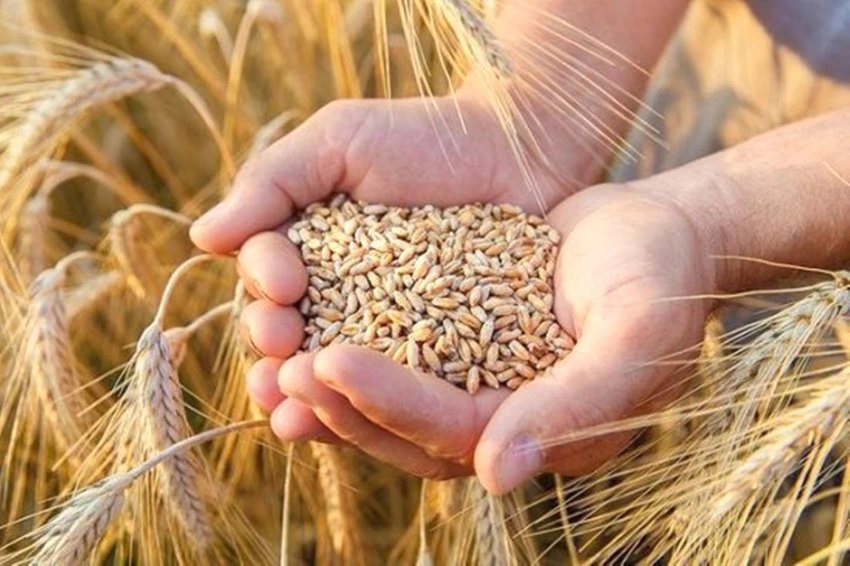John 12:20-33, Fifth Sunday of Lent

“Amen, amen, I say to you, unless a grain of wheat falls to the ground and dies, it remains just a grain of wheat; but if it dies, it produces much fruit.”
Jesus compares us to a grain of wheat. If it falls to the ground and dies, it produces much fruit. We ask: what does this really mean? What in our lives need to fall and die for our lives to produce much fruit? What in our selves need to die so our lives will bear more fruit? Or a more basic question: do we really have to go through this dying for our lives to be fruitful? What does this dying, this death, really mean?
One way to answer these questions is this. Reflect on your life. Has it produced fruits? Has it produced much fruit? If you think it has, then the next question to ask, following what Jesus said in the Gospel: what has died in you? Or, what is dying in you?
For parents, such fruitfulness can be seen in the family you have raised, your children, your house, and all the love and hard work you have poured into this. And to get you had to sacrifice a lot, perhaps you had to choose a job that may not be what you really wanted, but good enough to sustain your family needs. Or you had to work really hard to earn a living, and in the process, parts of you died, like the following: your immature ways, your addictions, your laziness, your undisciplined ways, your lack of faith in yourself, your doubts about your ability to be a good parent. These parts of you died, but something else was given life, like your confidence, your strength, your perseverance, abilities you thought you did not have, your capacity to be a good mother and a good father, a good husband and a good wife.
Self-centeredness, selfish ambitions, disbelief in your capacities or low self esteem, lack of faith in your self, or in others, or lack of faith in God — all these die, or to put it in another way, we overcome them, we transcend them, we replace them with better attitudes, we shed off negativities and assume more positive, healthier dispositions, all these bearing fruit. For students, passing a course, achieving excellence in something, graduating, building a career, a profession. Fruitfulness can also be seen in the relationships we develop along the way, companions, colleagues, friends.
Hence we examine our lives and see how they have produced fruit, and reflect on what parts of our lives died along the way. “Unless a grain of wheat falls to the ground and dies, it remains just a grain of wheat; but if it dies, it produces much fruit.”
Another way to reflect on this mystery is to see how your life is not bearing fruit, or perhaps better to ask, how your life is not yet bearing fruit. What are the things that keep you from having a productive life? And, following the Gospel, ask too, what in your life and in your self, need to die. God is calling you toward a fruitful life, but something has to give, some things need to be given up, some things have to die.
It may be bad habits we need to stop. It may be what we call the bad versions of ourselves, our dark spots, our favorite sins and sinfulness, our inordinate attachments, our excesses, our compulsions, addictions, our masks, pretensions, hypocrisy, our lack of faith, our lack of hope, our inability to love — so many things that block the potential of our lives to bear fruit, so many things that need to die, that need to be confronted, that need to be overcome.
We know of our tendency to fail because we could not overcome our pride; we get fixated in negative images of ourselves such that we could not achieve much in life; we need help in sorting deep issues, many of which are psychological and emotional issues, burdened by past hurts, pains, and trauma, all of which we need to process, to let go; so some freedom or liberation can be attained, disposing our future to be more positive and productive.
We all, all of us, experience this dying and living, this giving up and receiving, this letting go and letting God. All of us experience this mystery of death and new life, this falling and rising, which may happen in days that are both ordinary and extraordinary, this pattern of sacrifice and fruitfulness.
What Jesus tells us in the Gospel is to have faith in this pattern of life and living. Strive to follow Him, be passionate about searching and following God’s will, even if it means leaving behind your own will, self-denial, sacrificing for the sake of love. Strive to obey God with all our minds and hearts, even if it entails difficulty and pain. Ultimately Jesus simply tells us to trust Him, have faith in Him, surrender to Him. For if we fall, we fall in the loving embrace of God, ready to transform us, change us for the better, launch us to new life, a life that bears fruit, fruit that is blessed by God, fruits that make us, and the world, better.
This is the mystery of our faith, this is the meaning of our lives, this is the Paschal Mystery. This is what we celebrate this Lent. Christ has died, Christ is risen, Christ will come again. The very pattern of our Christian lives. We die with our sinfulness and pride; we rise in faith, hope, and love; we are renewed in the fruitfulness of our lives. Amen.
*Image from the Internet